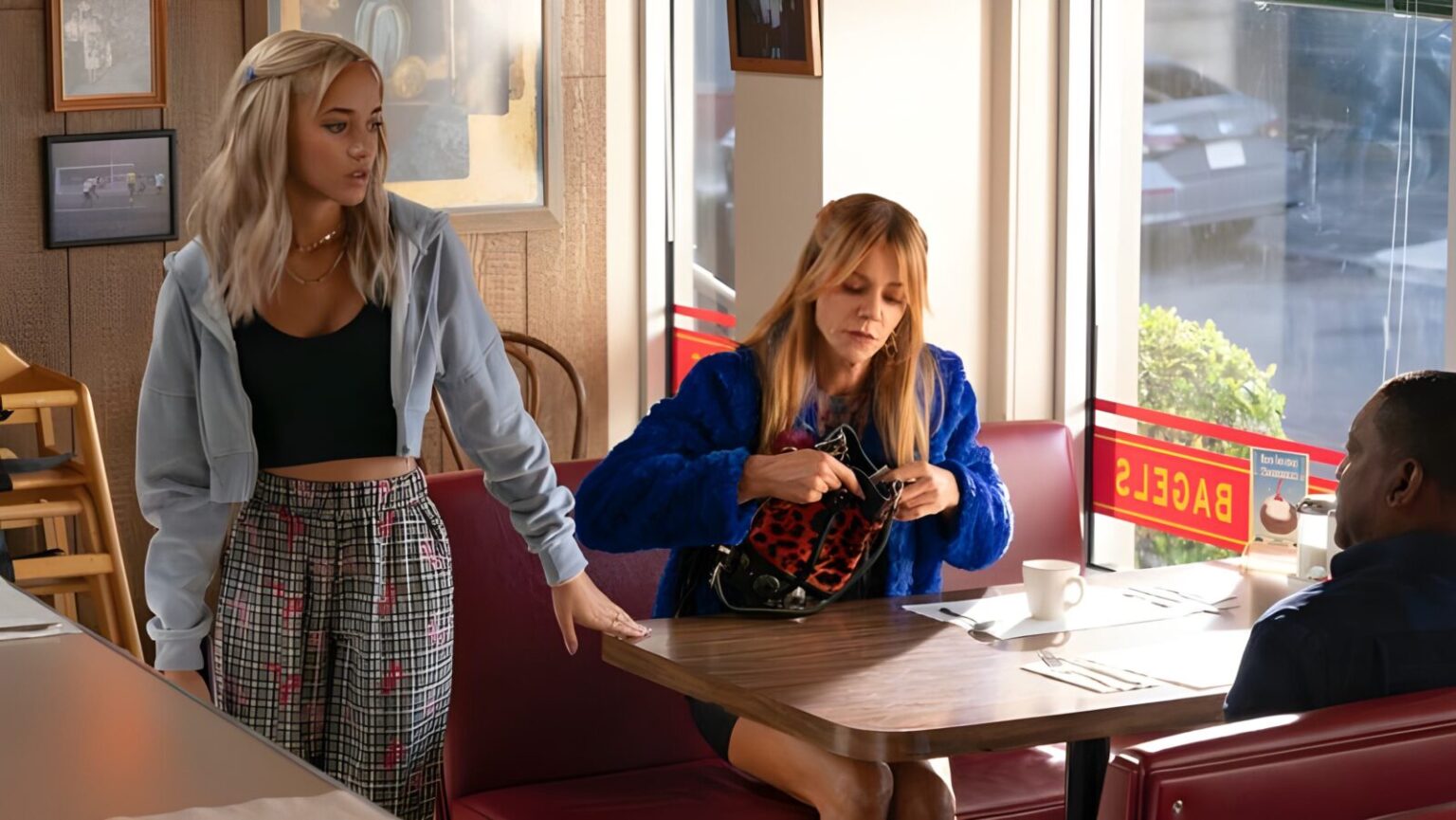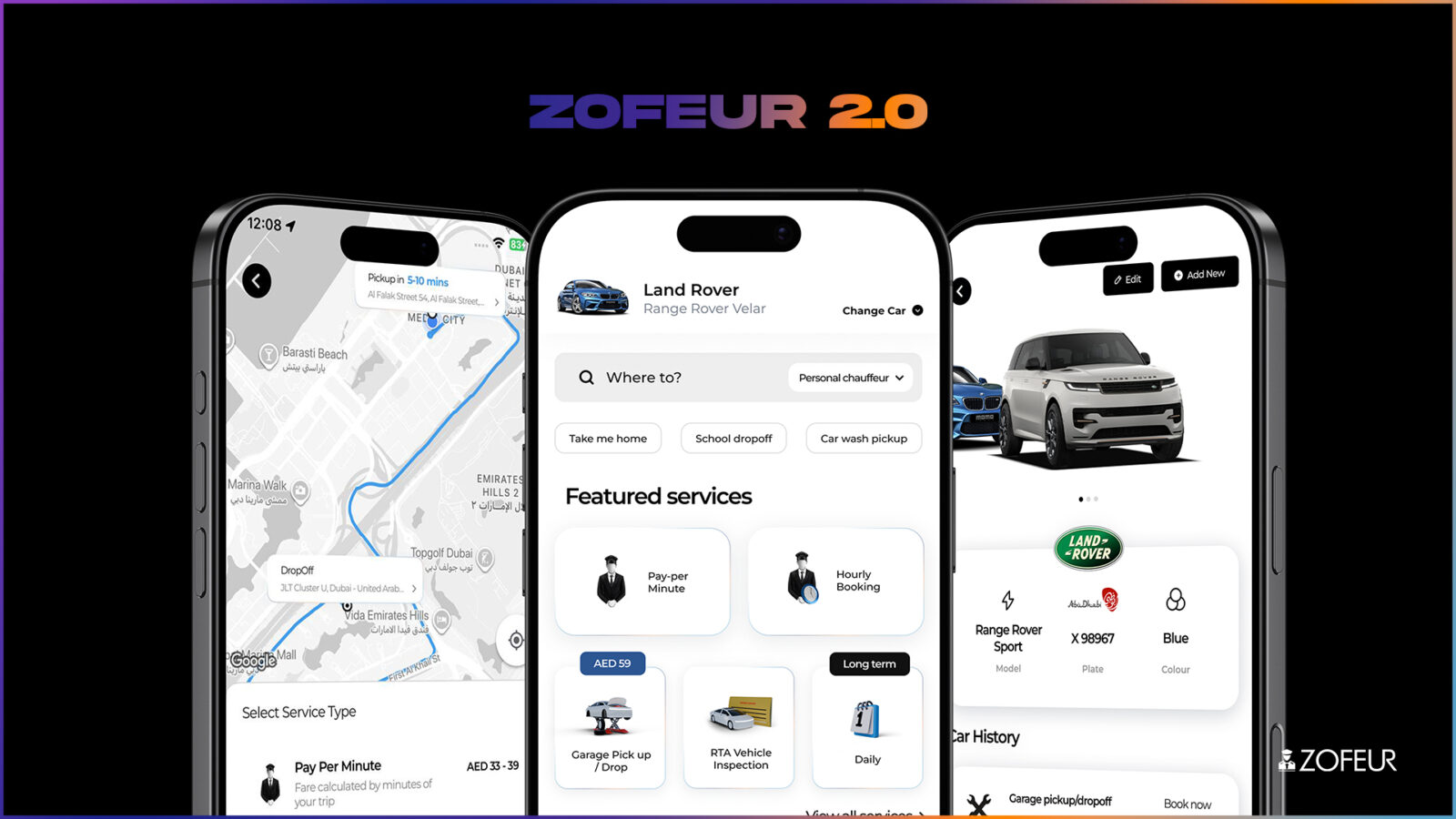TL;DR: Strong, character-forward setup with a decent case, a juicy new captain I do not trust, and a backpack that’s about to blow the Roman plot wide open. Fun, tense, a bit thin in places, but confidently pointed at bigger things.
High Potential season 2
I’ve always thought High Potential works best when it’s arguing with itself. It’s a procedural that wants to be a hangout comedy, a hangout comedy that keeps tripping over a serialized mystery, and a serialized mystery that insists on dressing like a network show where the case of the week starts with a body that teenagers find while the speakers blast something jaunty. That friction? It’s the fun. Season 2, Episode 5, Content Warning, doubles down on that tension and then slides a brand-new cop-shaped wedge into the middle of everything: Captain Nick Wagner, a smiling suit with a networking face and the kind of calibrated charisma that makes me check that my wallet is still in my pocket.
The hour is transitional by design—more scaffolding than skyline—but it’s good scaffolding. The case escalates, the Roman backpack myth grows a spine, and Major Crimes gets a new boss who smells like a subplot. And yes, I don’t trust him one bit.
If you’re skimming for the SEO gods: this is your High Potential Season 2 Episode 5 review, complete with a breakdown of the LAPD’s new captain, thoughts on the Roman Sinquerra backpack, the content house homicide, and why Kaitlin Olson keeps making me laugh at lines that shouldn’t be funny on paper. I’ll keep it readable on your phone. Let’s go.
Two teens, a dark pond, a body. You could almost tighten your procedural bingo card into an airplane and throw it across the living room. But High Potential rarely leaves its bodies at “dead person equals clue.” The show prefers a second life for the corpse, where the victim’s online footprint, professional shadows, and secret spreadsheets keep talking even after the morgue drawer closes. Tori Nolan, this week’s victim, is an investigative journalist with more burner tabs than friends and a knack for picking at powerful men with tidy haircuts. She was also living undercover in a content house, that influencer terrarium where ring lights go to molt and people film the worst ideas they’ll ever have.
The first act hums along: Morgan Gillory (Kaitlin Olson) and Adam Karadec (Daniel Sunjata) pull threads, banter, and step around the kind of social media micro-celebs who think “pathos” is a ring light setting. The house’s king weasel, Phineas, looks like a suspect because he’s designed like one; if a tech bro evolved into a motivational poster, you’d get the vibe. But High Potential loves a red herring, and this one wriggles off the hook fast. Tori, we learn, was digging into a protein powder brand with a too-friendly label and a less-friendly ingredient list. She had history with the company’s owner, Bobby Romano, the sort of college ex-nemesis who probably monologues at reunions. She threatened to expose him. He ends up dead too. That complicates things.
If you’re here for the detective mechanics, Content Warning does the thing. Morgan chews on variables until numbers fall out. Karadec keeps the investigation steerable, like a human lane assist. They triangulate from Tori’s undercover notes to the brand’s distribution and land on a quiet rot: a halfway house operator, Gavin Tillman, who’s repackaging despair into profit. He’s the guy who smiles for headshots and sells trust by the ounce, which makes him invisible until he isn’t. He’s also running the drug pipeline that contaminated the protein powder line, and when Tori found the seam, he made sure it closed.
Is the reveal satisfying? Mostly. Is it a little abrupt? Also yes. There’s a missing middle scene or two—especially anything involving Bobby Romano’s second-in-command, Lamar—that could’ve textured the chain of command. Still, the twist tracks with the show’s meta of the week: flashy villains aren’t the problem; the real monsters are the ones who do paperwork on time.
Everything I just wrote would be half as fun if Kaitlin Olson weren’t acting like the script dared her to juggle six tones at once. Olson’s Morgan reads people like she’s picking locks with a smile, which is both the show’s hook and its empathy engine. She clocks the way a hand hovers above a coffee mug, the exact cadence of a fake apology, the hesitation before an “I don’t know.” But the performance clicks because Olson makes Morgan’s patterns feel human, messy, and funny—never mystical. The character’s “high potential” isn’t a superpower; it’s a practiced sensitivity turned up to eleven, and Olson calibrates it scene by scene. She can punch through a suspect’s defense and then later spiral about a backpack like she’s staring at the last unopened box from an old apartment.
About that backpack. The Roman storyline has been this season’s long fuse: Roman Sinquerra, the ex whose name arrives with a warning label, is out there. He is also, very specifically, hiding from law enforcement. The show slips that detail into the room again here, and it matters. Morgan spends the episode doing what she does best—looking into spaces people would rather keep dim.
Enter Arthur Ellis (Mekhi Phifer), Roman’s old friend and human alibi machine. Morgan, who doesn’t have time for gatekeepers, goes full heist mom: she shows up where Arthur works, she corners him at a diner, and she blackmails him with the kind of “gentle nudge” energy that says, “I have snacks and I will outwait you.” Arthur vouches for Roman’s character, which sets off two reactions at once. One: that’s convenient. Two: oh no, now I want to believe him.
The key scene spirals when Ava (Amirah J)—Morgan’s daughter and the household’s unofficial head of ethics—shows up, despite being told not to. She sends the chessboard flying, in a good way. Ava’s presence punctures the grown-up dance of secrets and control; she’s emotionally allergic to being excluded, and she’s right. Morgan’s fury afterward is both parental and tactical, the sort of “I said no because I wanted to shield you, and now I’m mad because I couldn’t” anger that makes for a terrific fight and an even better quiet beat when the backpack finally appears, offscreen, like a cliffhanger with a zipper.
The backpack becomes a symbol this episode handles with an almost literary restraint: it’s both the past’s carry-on and the future’s spoiler. Does Roman’s bag hold evidence that he’s a target? A perpetrator? A patsy? Probably a messier category: a person who was in over his head and reached for the wrong lifeline. What matters is that Morgan’s relationship to the mystery is personal in the complicated, adult way. She’s not chasing closure; she’s chasing context. That’s more interesting, and more dangerous.
And then there’s the part of High Potential Season 2 Episode 5 that made me lean forward and mutter “nope” at my screen: Captain Nick Wagner (Steve Howey), the LAPD’s shiny new ladder climber, glides into Major Crimes like he’s auditioning to play the concept of management. He’s friendly, he’s everywhere, and his office is wherever you were just about to feel comfortable. He relocates Selena (Judy Reyes) from her own office like it’s NBD. He schedules one-on-ones with the unit. He approaches Daphne (Javicia Leslie) with the strategically benevolent pitch to take the Sergeant’s exam, while conspicuously ignoring Karadec’s actual work in favor of asking about—wait for it—Morgan.
This is the part where I admit that High Potential could be tricking me on purpose, and I hope it is. Wagner’s fixation on Morgan might be framed as professional curiosity, even paternalistic career development. But the episode threads in enough meta-alarms that you can’t miss the subtext: he’s not collecting data; he’s collecting leverage. When someone keeps asking questions about the person you care about and never about what you do, you are not in a conversation—you’re in a chess problem.
The show doesn’t thump this drum too loudly. It’s more elegant. It lets Oz (Deniz Akdeniz) describe his meeting as “odd” without showing it, a smart choice; leaving it offscreen makes Wagner feel omnipresent but untraceable, which is scarier. It lets Selena clock the pitch to Daphne but play it cool, because a strong leader doesn’t pull the fire alarm at the first whiff of smoke. And it lets Morgan make the read that tells us everything about both of them: she pegs his nepotism in two sentences but also sees the reverse gravity—he wants to succeed on his own terms. That’s relatable. It’s also what makes him dangerous. He’s an institutional kid trying to prove he isn’t one, which usually means he’ll break rules but only the ones that benefit him.
I don’t trust Captain Wagner one bit. I don’t trust his timing, I don’t trust his sudden interest in a single precinct, and I especially don’t trust the neat fact that his father retired five years after Roman disappeared. That’s not an accident; that’s a breadcrumb that looks like it knows it’s on television.
Even with the Wagner fog machine running, Content Warning keeps its procedural promises. The squad’s rhythms are right. Daphne is the person you want on your side if a plan requires competence and zero fanfare. Oz continues to be the show’s secret sauce, the human GIF reaction who sneaks in utility while he’s making you smirk. Karadec remains the most patient man on American television, balancing Morgan’s sprint with a steady jog that gets there just as fast.
There’s a version of this episode that would have sanded the case to a nub to make room for Roman’s backpack and Wagner’s smile. I’m glad we didn’t get it. Instead, we get the kind of case that clarified what the show thinks an antagonist looks like in 2025: not the shouty guy at the center of the content house, but the quiet manager behind a halfway house’s budget line, moving money and product until the edges blur. The monster isn’t spectacle; it’s logistics.
I’m allergic to the phrase “table-setting episode” because it assumes dinner isn’t part of the point. Content Warning is table-setting, sure, but it makes the place cards interactive. The Roman plotline advances not by exposition but by ultimatum. The Wagner storyline doesn’t announce itself as an arc; it behaves like one. The case-of-the-week adds a thematic layer instead of simply leaving a chalk outline and a callback. You feel the voice of the show tightening around what it wants to be: a character-first procedural that refuses to ditch its messier feelings at the door.
If you’re measuring the hour by resolution, you’ll call it incomplete. If you’re measuring by momentum, it’s generous. The last shot—Arthur leaving the backpack without a reveal—feels like the show winking: you’ll get your answer next time, but we want you sitting with the question first.
Some shows stage parent-teen conflicts like sitcom squash matches: a quick spike, a lesson, a hug. High Potential is smarter about it. Morgan and Ava’s fight here isn’t about a backpack or disobedience. It’s about who gets to decide how much truth a family can carry at once. Morgan tries to curate the danger. Ava refuses to be curated. That friction gives the Roman arc a moral undertow the show will need when the facts finally surface. If Roman is a ghost with a complicated ledger, the verdict won’t be satisfying without Ava’s vote.
I also appreciate how Ava’s intrusion into the Arthur meetup detonates the adult code of silence that often suffocates shows like this. Teenage characters too often exist to be endangered or sheltered. Ava chooses agency, and the episode takes that seriously, letting her be both right and a little reckless. That’s real. That’s also how you build a season that earns its emotions instead of borrowing them.
High Potential remains a tonal gymnast. It can swerve from a joke about influencer nonsense to a close-up of grief without throwing its back out. Content Warning shows that control especially well in the Tori storyline. Tori isn’t an abstraction; she’s curious, brave, and unlucky in a world where telling the truth is frequently treated like trespassing. When the episode lands its twist, you’re not just impressed by the mechanics; you’re a little mad about the world that makes those mechanics plausible. That’s the sweet spot for a network procedural in 2025: give me comfort TV that still makes me think about the water we’re swimming in.
If I have a gripe—and I do—it’s that the middle third of the case could’ve used one more step. Lamar, Bobby’s second-in-command, is mentioned but never deployed, leaving a useful perspective on the floor. A secondary interview that clarifies how the contaminated product moved from idea to inventory would also have helped the final reveal punch harder. It’s not fatal. The episode’s pacing is brisk and the character work keeps you fed. Still, I felt the missing scene the way you notice a chair that should be at the table.
Let me put my tinfoil on with a flourish: Wagner is either directly connected to whatever happened to Roman, or he’s the air freshener someone just sprayed on the hallway leading to that door. The episode twice reminds us that Roman is hiding from law enforcement. It also goes out of its way to note that Wagner’s father retired five years after Roman vanished. That’s not an Easter egg; that’s foreshadowing doing push-ups in the middle of the frame. Maybe the elder Wagner helped bury a mess. Maybe Nick knows or suspects and plans to monetize the reveal. Maybe he’s just ambitious enough to see Morgan’s gift as a career accelerant and doesn’t mind collateral. Any of those options keeps him interesting. All of them keep him untrustworthy.
Open the backpack, obviously. But beyond the prop, I want the show to lean into its best trick: make Morgan’s greatest strength—her read on people—the exact thing that complicates the Roman story. If she’s wrong about him, let it break something. If she’s right, let it cost her anyway. And let Wagner press on those vulnerabilities with the softest possible hand. Smiling antagonists are TV rocket fuel.
For the casework, give me more Lamar-type voices. When an episode builds its twist around logistics, the connective tissue matters. High Potential doesn’t need to become a document dump; it just needs to let one more voice explain how a thing happens before the cuffs click. The show’s empathy is its differentiator. Spread it around.
Content Warning is a hinge, but it’s not flimsy. It sharpens the season’s serialized edges, gives Morgan and Ava a clash that feels lived-in, stages a case that swaps spectacle for systems, and installs a new captain who radiates mischief. The hour trusts us to clock what matters and hold it until next week. That trust pays off, because the cast is cooking—Olson is having a season, Sunjata keeps the whole vibe grounded, Reyes radiates command, Leslie brings purposeful warmth, Akdeniz steals laughs in the margins—and the writers have found a reliable rhythm for mixing weekly puzzles with the long game.
Is it perfect? No. Is it satisfying? Yes, but differently. This is the part of the season where the show stakes its claim: the Roman Sinquerra mystery will be a character story first and a conspiracy second. And the Nick Wagner problem will be a mirror held up to the institution that keeps asking Morgan to save it while quietly plotting to manage her. I don’t trust him. I don’t plan to. That’s the fun.
Final verdict:
Content Warning is the patient kind of setup episode—the kind that trades fireworks for fuse length. The influencer house murder is solid, if a bit under-illustrated in the middle, and the Roman backpack tease finally feels like momentum instead of stall. Most importantly, Captain Nick Wagner glides into the frame like a man who thinks he’s the protagonist of everyone’s story, and that makes him the perfect antagonist for Morgan. I left the hour entertained, a little unsettled, and very ready for someone—preferably Ava—to unzip that bag.







